“We are on the frontline of the struggle,” author and LGBTQ activist Roz Kaveney says. Kaveney would know: Back in 1972, she was part of the group that who organised the first ever Pride March in the UK – the now-annual parade that celebrates its 50th anniversary this month.
The Gay Liberation Front (GLF) was founded in 1970 in the wake of the Stonewall Riots in New York and went on to hold some of the most anarchic and trailblazing protests in British history, including disrupting the launch of the Christian family values campaign Festival of Light with stink bombs, a lesbian kiss-in and male nuns in drag.
Videos by VICE
“You’ve got to remember that the GLF was not an organisation – it was a movement and it had loads of different kinds of people in it,” says historian and activist Lisa Power, 67, who has extensively documented the organisation’s history.
But it’s Pride that is perhaps the most important legacy of the GLF. This year, the parade in London drew 1.5 million people and corporate sponsors by the metric tonne. Fifty years ago, only a few hundred protesters showed up and there was a real fear of public harassment and attack.
But even then, the parade set the tone for decades to come. “I joined Pride in the mid 1970s and my first memory of Pride is people arguing with each other about commercialisation because [openly queer singer] Tom Robinson had been on Top of the Pops,” laughs Power. “So trust me, the same arguments have been going on for four decades and more.”
On Friday – the day before the official Pride in London parade – some of the remaining organisers of the GLF came together with younger queers and activists to retrace the steps of the march they spearheaded all those years ago. VICE photographer Bex Wade met up with five of them on the day of the march to document their memories of the first Pride and to ask them about the most pressing issues facing the LGBTQ community today.
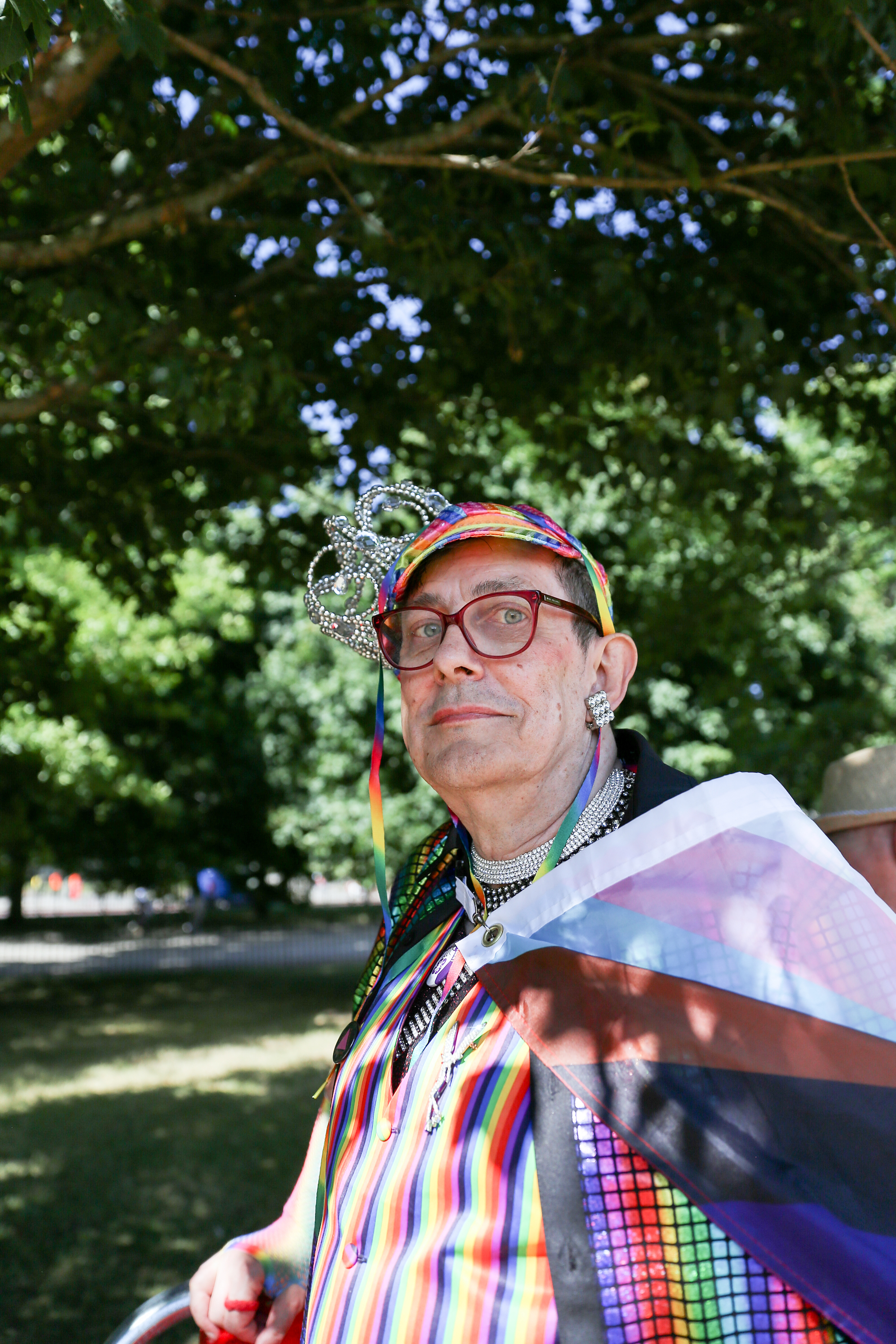
Julian Hows, 67
I was a teenager who knew they were gay from ten or 11 and started talking about it at school, which shocked everybody, and started looking up things like gays, GLF and things like that. I was a precocious little brat. I started going off to GLF meetings when I was like 15, 16. [The first Pride march] was fabulous. It taught me the value that [it] doesn’t matter if you think you’re different – because we’re all unique individuals – but let’s not be shameful or frightened about it. Let’s not think that because we are merely statistically deviant, that we don’t have the right to the same sun as everybody else.
We knew [the march] could be a slap in the face and we knew there would be a small group of us. We knew that there was bewilderment, hostility and fear from the police, the public, and all the gay people around us who were thinking, ‘Oh, you’re upsetting the boat.’ There was fear [and] apprehension, but we did it and the sky did not fall down.
I don’t know that there is just one struggle. There are always multiple struggles we come out from because of our identities, our age, the way we choose to express our gender. There’s transphobia, there’s – still, it seems – rows about sex education in schools. There are still rows about how our LGBTI asylum seekers are not treated with respect and dignity as other people are. There is a crisis in in LGBTI young homelessness and there is also a crisis in elderly care for LGBTI people. I think all these things are our struggles.
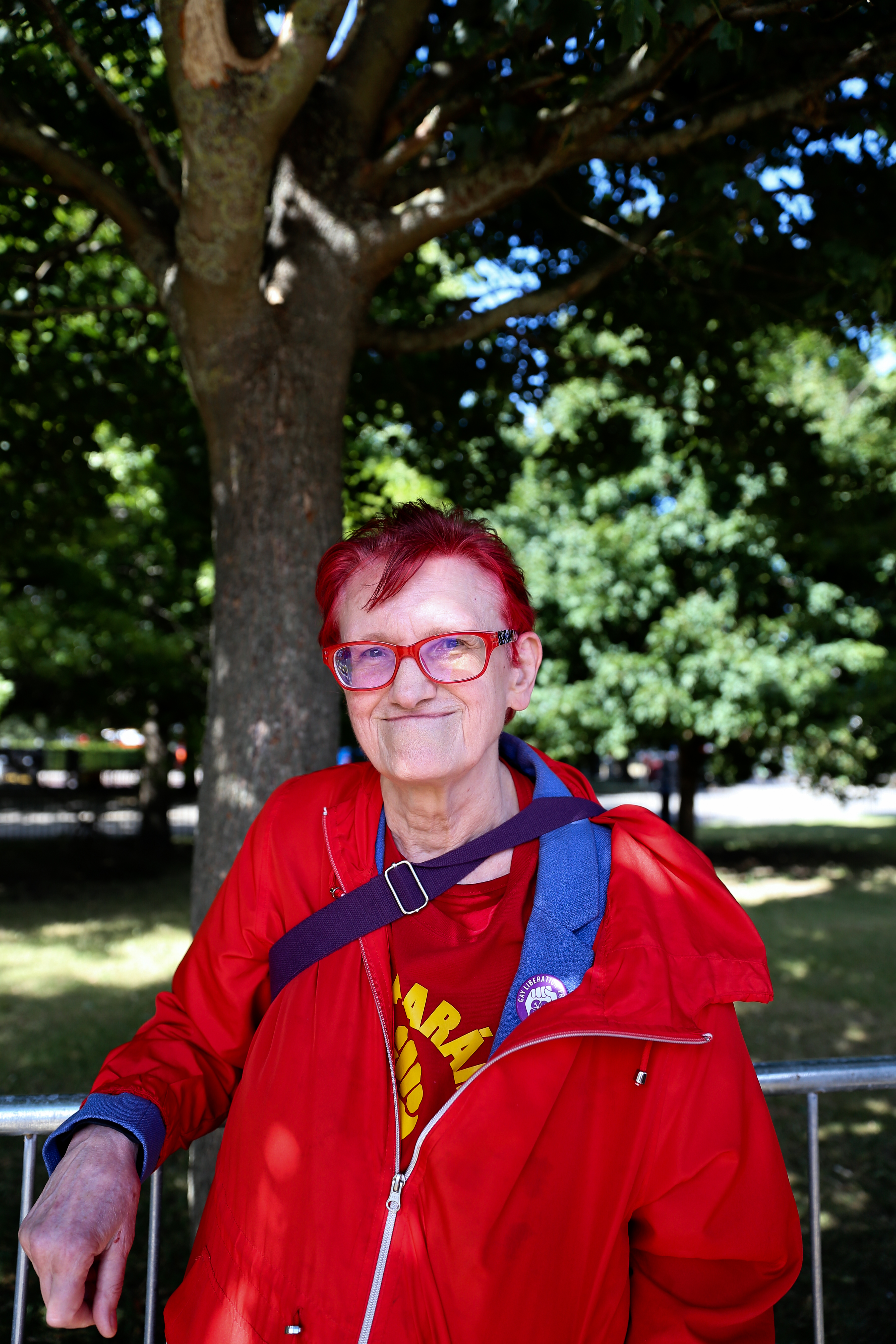
Nettie Pollard, 72
I got involved in the GLF in April 1971 because my closest friend turned out to be gay, so we went to the first meeting together. Thereafter I was wearing a Gay Liberation Front badge at all times, day in day out – not in bed, but apart from that.
We didn’t have any speeches in Trafalgar Square and we never told the press because it was about us coming out. [That was] a big thing that made GLF different from organisations which wanted legal equality but didn’t ask if everyone could come out. In Hyde Park, we played silly games and had a mass kiss-in and 12 of the men took all their clothes off and danced around. We just had a very good time. I was smoking weed and the police simply didn’t really know what to do – there were probably around 700 people, and they just couldn’t come and arrest us all. It was real strength in numbers.
I don’t know if I can separate [LGBTQ] rights and the rights of everyone. What’s happening in Hong Kong, for instance, that’s not actually a gay struggle. But it’s very, very important. It’s also I think, as shown by the GLF, about how you can try and start a revolution. They inspire us.
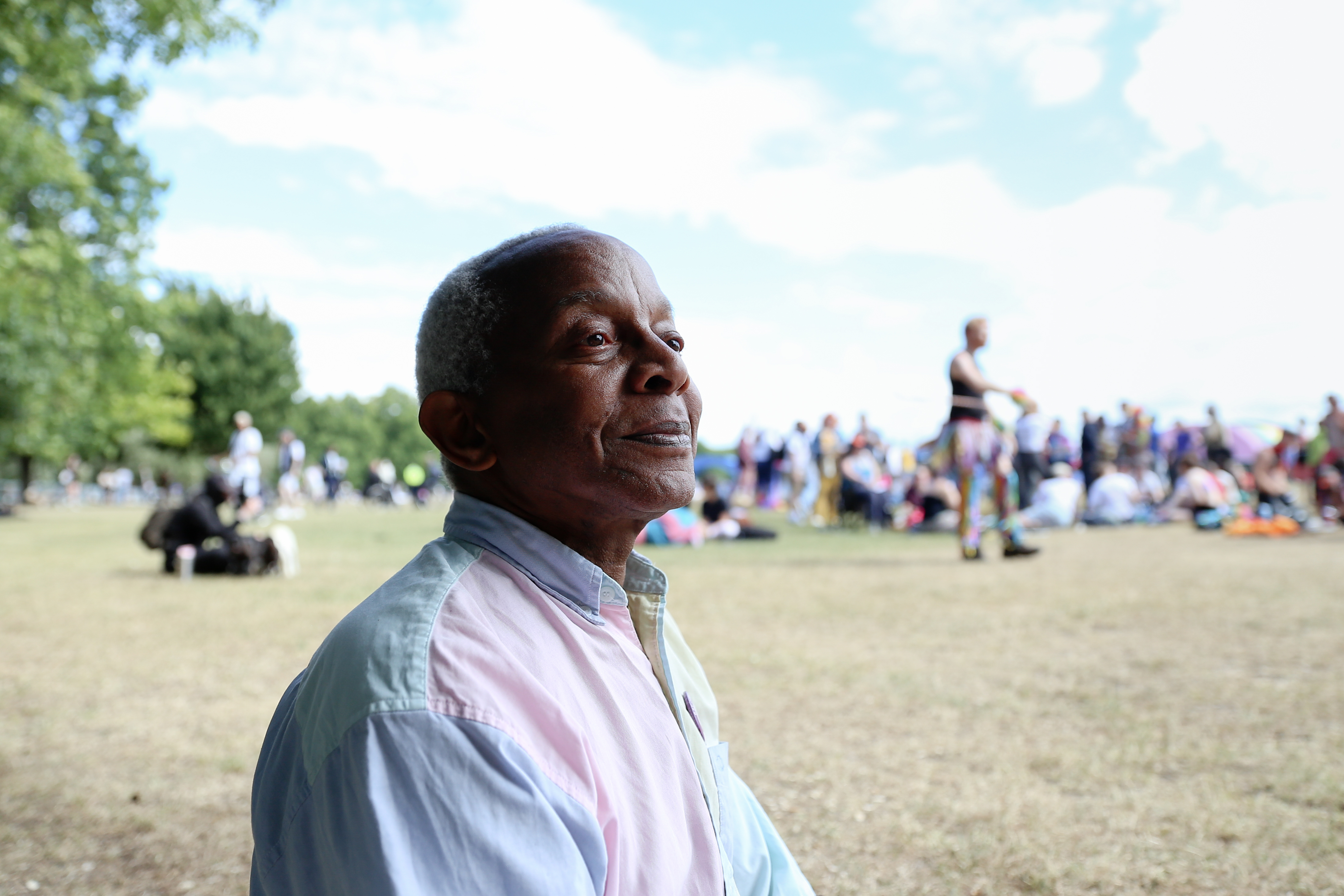
Ted Brown, 72
I read an article about [the GLF] in a magazine in 1969, but there was no way of contacting that group. But later I came across the film Boys in the Band, which was showing at the Odeon, Leicester Square. As I left the cinema, there were a group of people leafletting the movie, saying it was a misrepresentation of gay men. The leaflets were from the GLF, inviting people to attend one of their next meetings.
GLF was always a movement, never an organisation. There’s no official membership – we have no director or leadership, we’re totally opposed to a hierarchical structure. Everybody just pitches in.
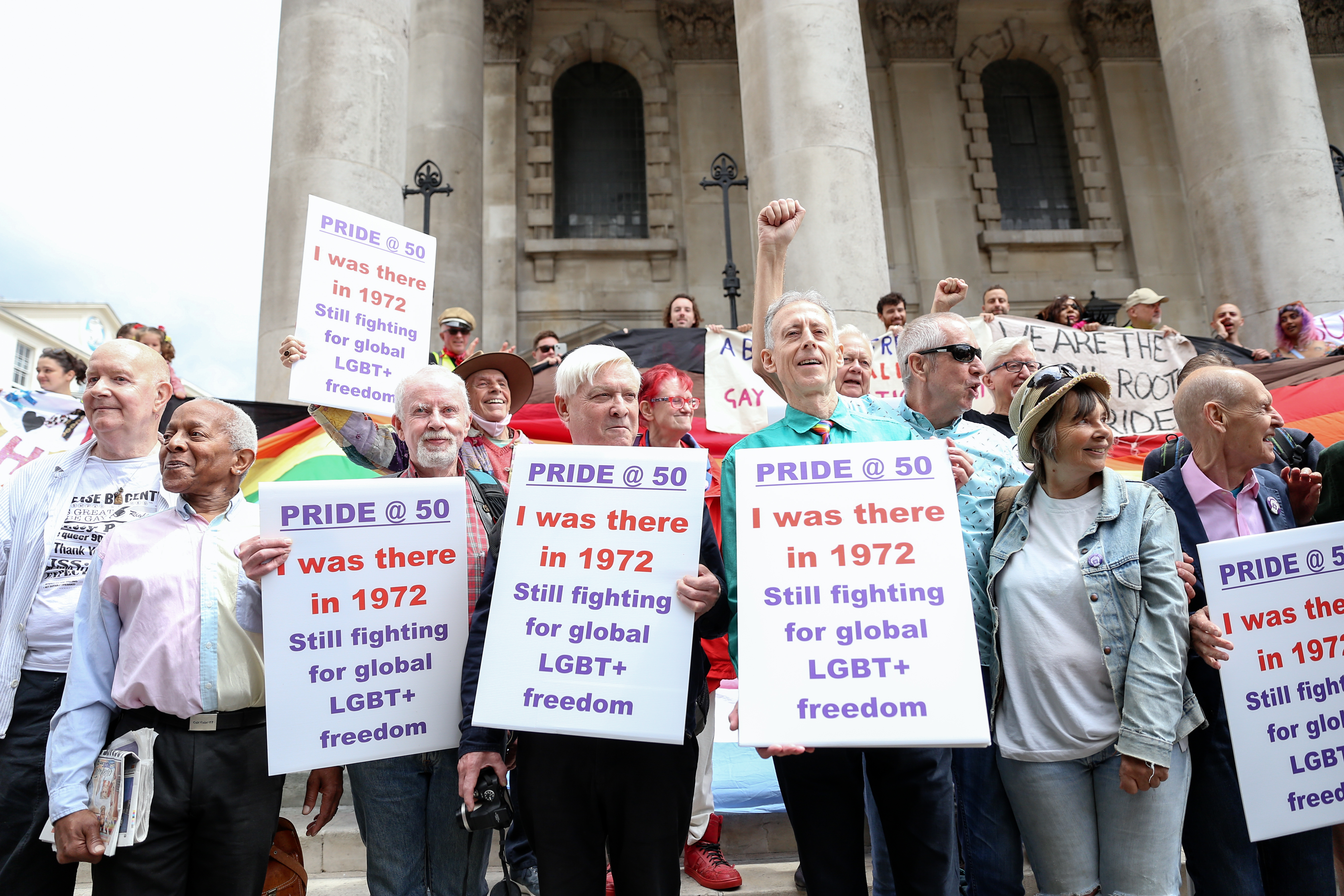
My memories of the first Pride are a mixture of exhilaration, because for the first time me and other lesbians and gay men were going to declare who we were in order to challenge the homophobia and stereotyping that existed and was allowed to exist while we kept quiet. But there was also apprehension, because this had never been done before. We had no idea how either the police or the public were going to respond. Many of us had been beaten up individually and we feared that there might be attacks as we marched along the street. But we decided to go ahead anyway.
The [biggest current struggle in LGBTQ rights is] for the recognition and the respect of trans people. Unfortunately, in the early days, the GLF did not take trans people very seriously. It was not considered to be an issue. I’m not exactly sure why, maybe it was because we were ignorant about it. But in the last five years or so, it has become a prime issue about people’s self-identity and their right to be who they are.
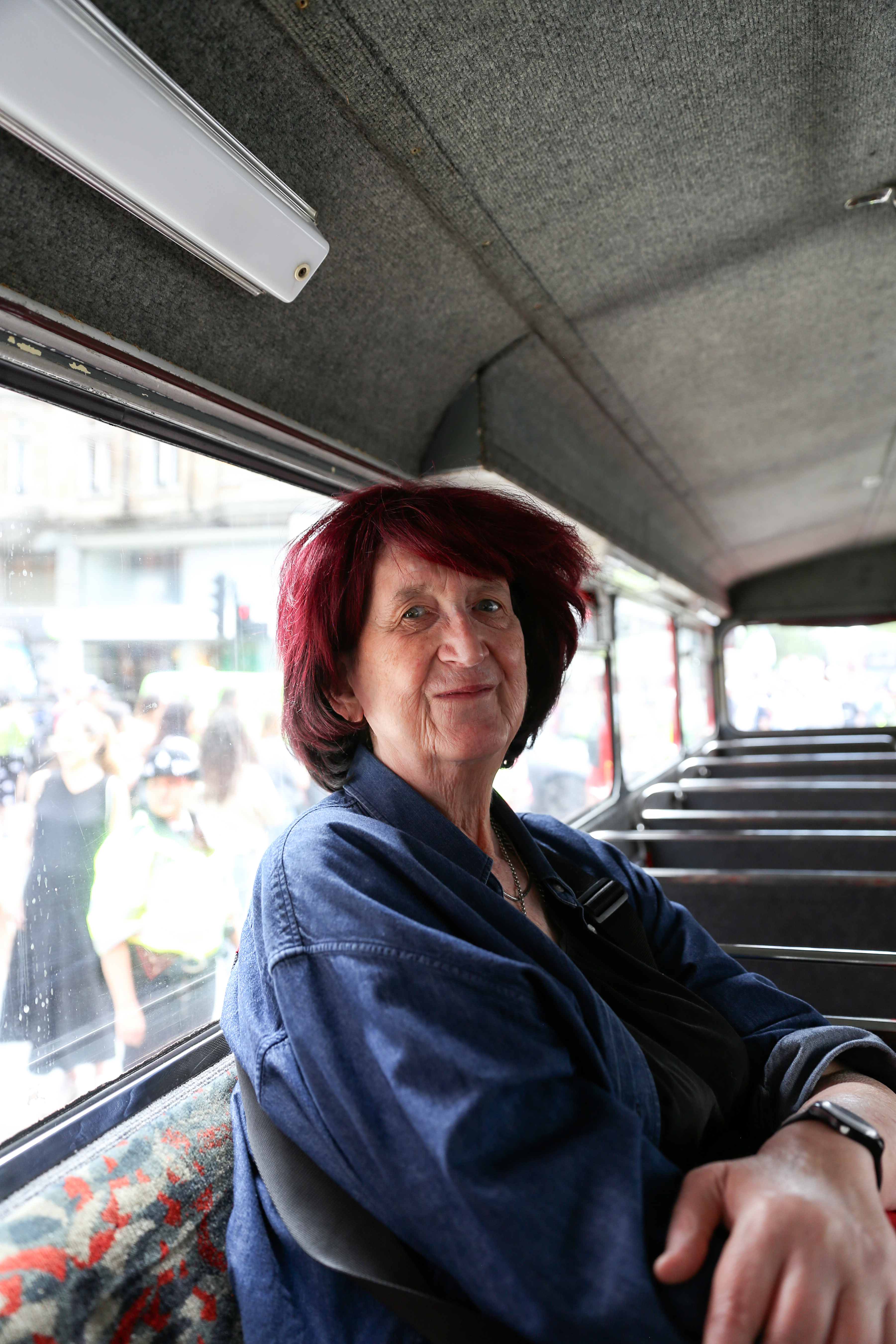
Roz Kaveney, 73
I was a new Oxford graduate who’d been around the trans community since my teens, but was still very scared. I got involved with GLF because I came to London working in the British Library on my postgraduate work. I rang GLF up and said, “Is there a trans group?” I met Rachel Pollack, who was the convenor of the group, and has been my friend for 51 years. As it happens, because Rachel has been back in the States for years, and a lot of the others are dead – I’m probably the only person from the trans caucus of GLF still around London.
The big struggle is the fight back against international fascism, which is trying to destroy the entire LGBT community. If anyone doesn’t think that’s not the priority, they’re asleep. There’s an international authoritarian movement which is targeting all LGBTQIA people, both because they hate us in our own right, and because we’re a handy wedge issue. We are a bit of the modern world that reactionaries hate. Reactionaries are terrified of losing their power because if they lose it now, they’ve lost it forever.
A lot of people delude themselves that transphobia is somehow a progressive cause. They are not merely wrong, they are also self-destructive fools. It’s as simple as that. Today means a chance to celebrate fighting back because the struggle continues.

John Lloyd, 69
I was politically involved from a very early age of 14 – Irish politics, peace politics – which is also the same age I came out to myself and other people. That was in 1967. I got involved in the Young Communist Communist Party trade union movement and then got swept up by GLF from the very beginning. I believed in social change, system change and anti-capitalism, but there was something missing.
Since the first Pride March, I used to organise a lot of marches and Pride marches right through the 1970s, including National Gay News Defence Committee. I don’t remember anything particular [from the first Pride March] other than it was empowering. It filled the void, everything that was missing in my revolutionary politics.
In this country, the biggest struggle is the issue of transphobia. It is increasingly widespread and tragically also in the LGBT movement, especially with the rise of LGB and T separation. The refusal of government to address conversion therapy is horrendous.
More photos from the Gay Liberation Front anniversary march:
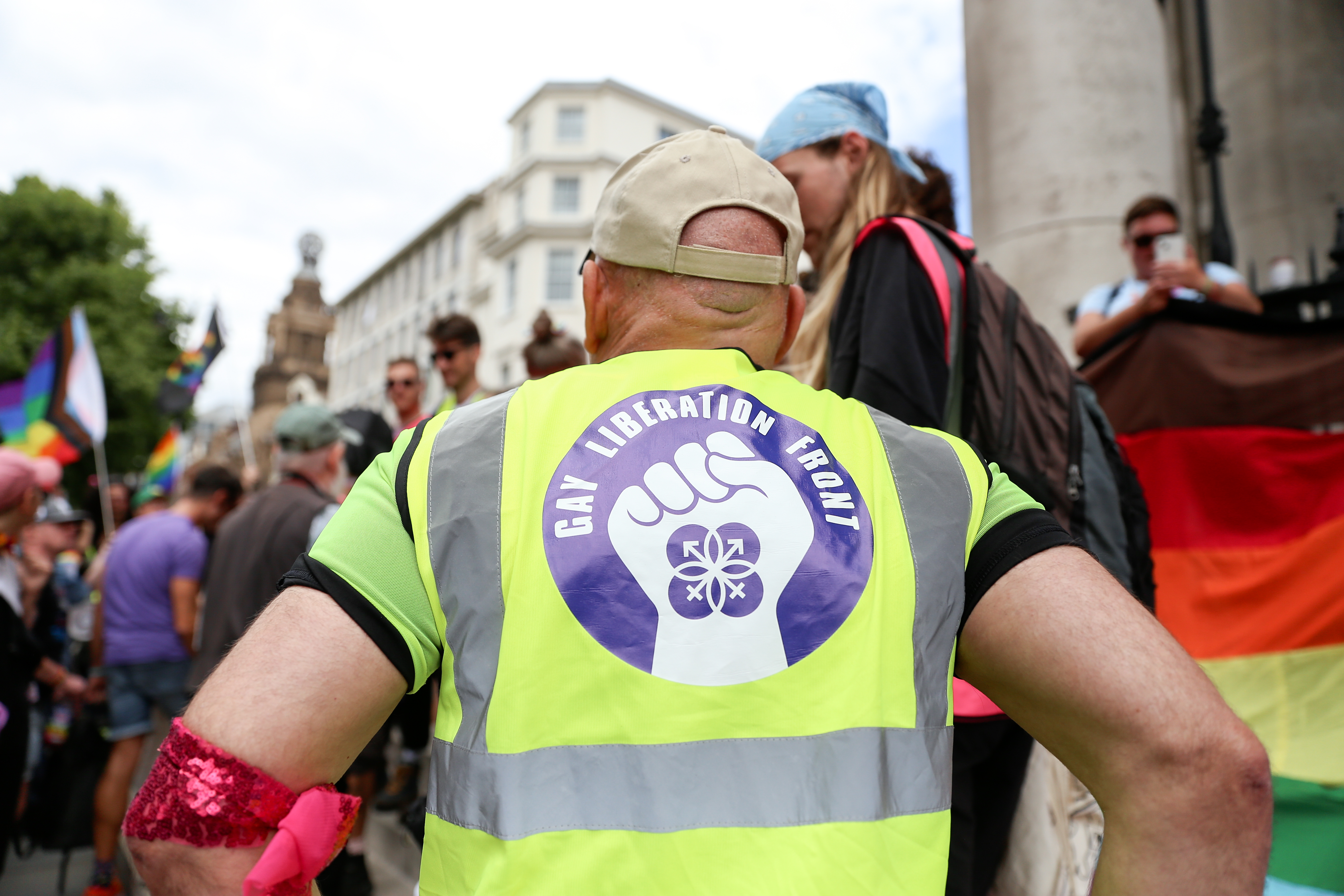
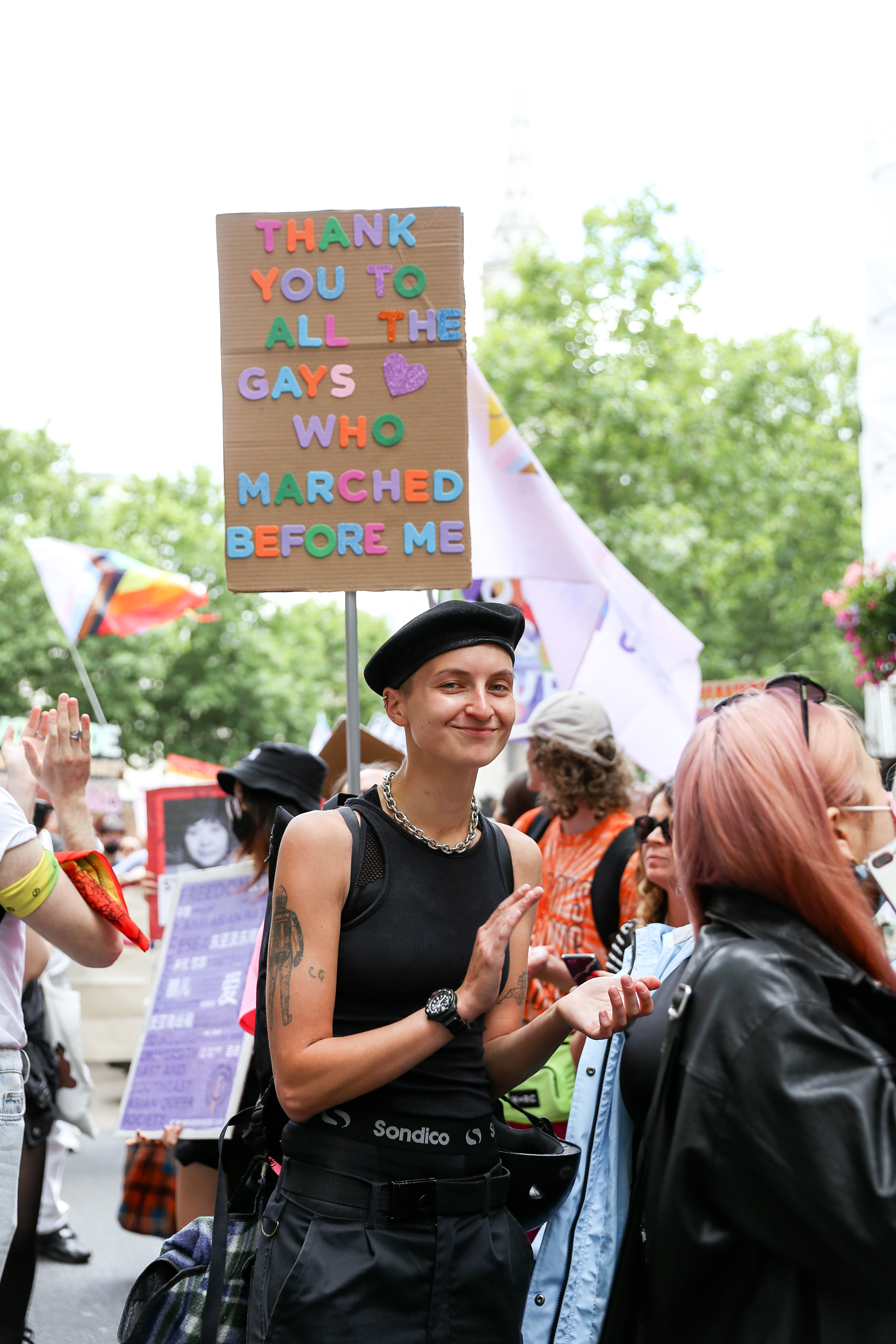
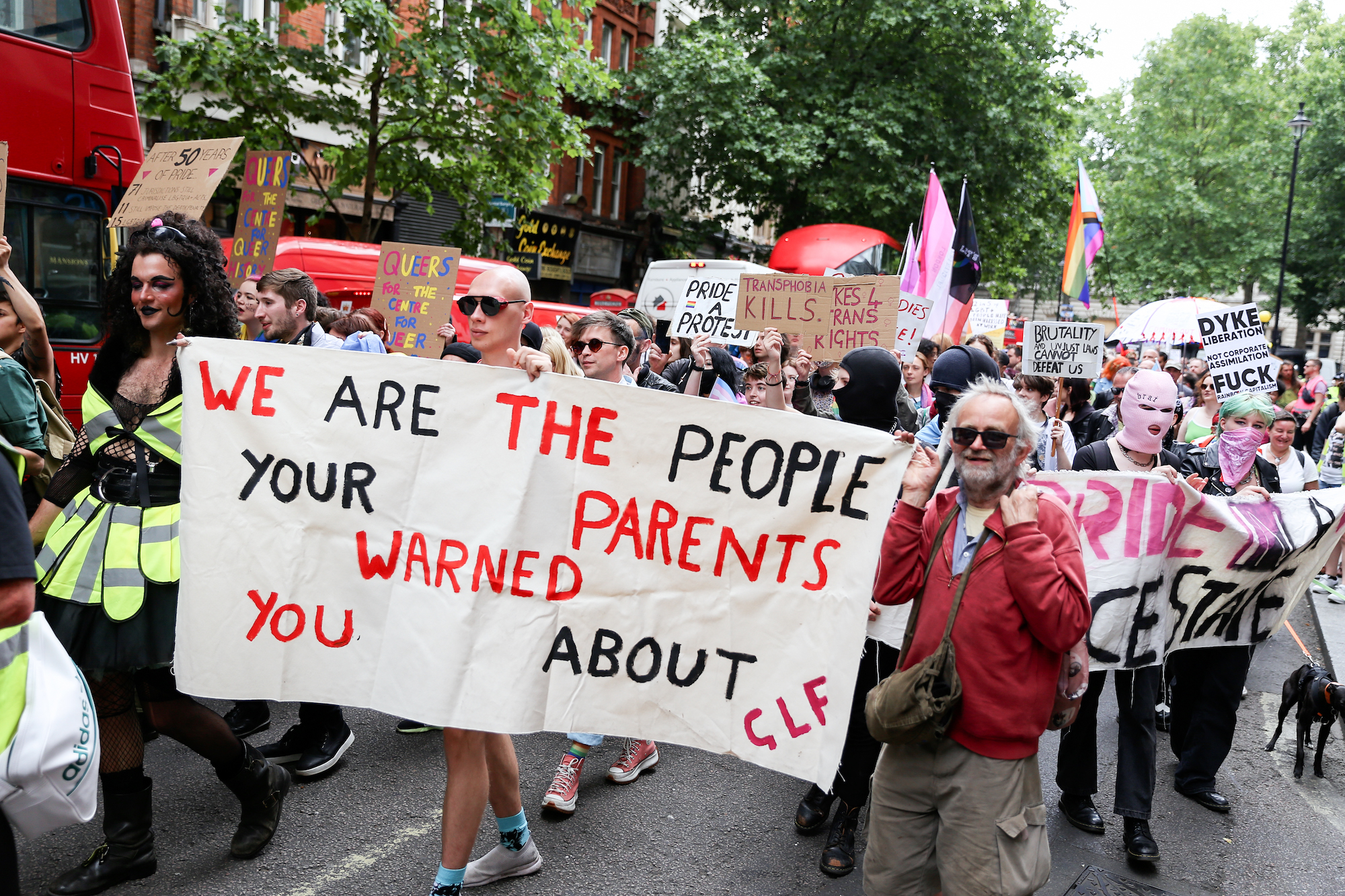
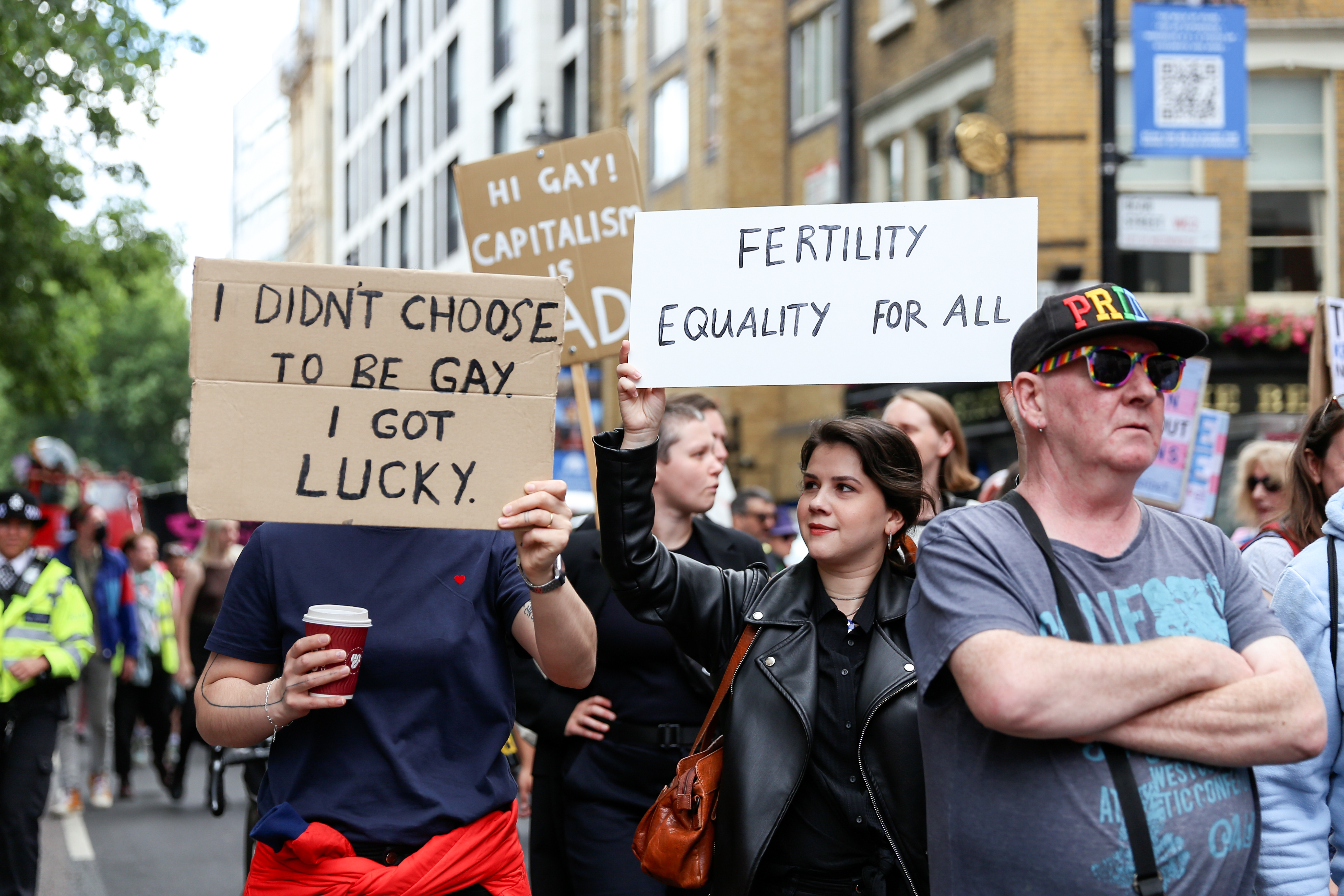
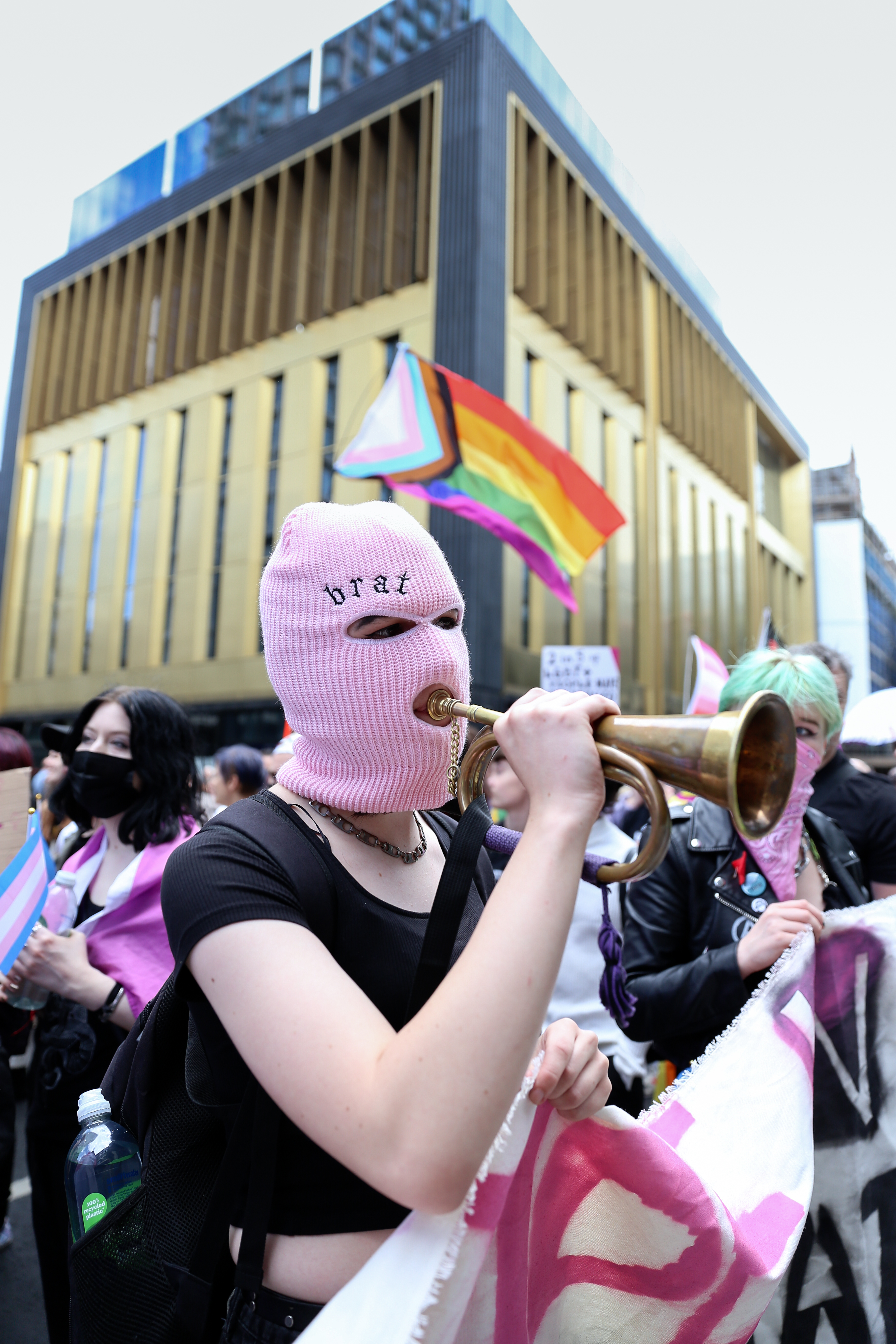
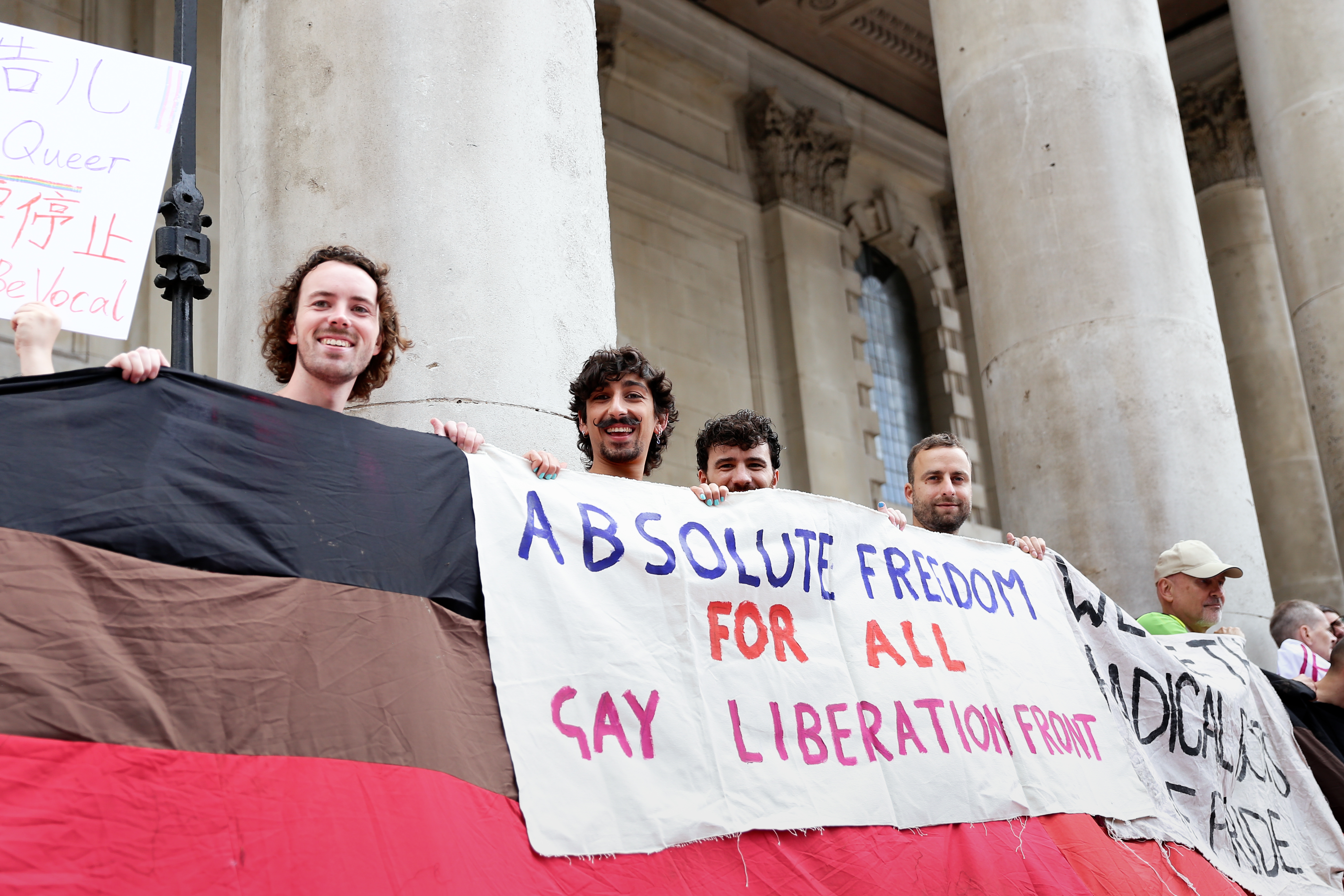
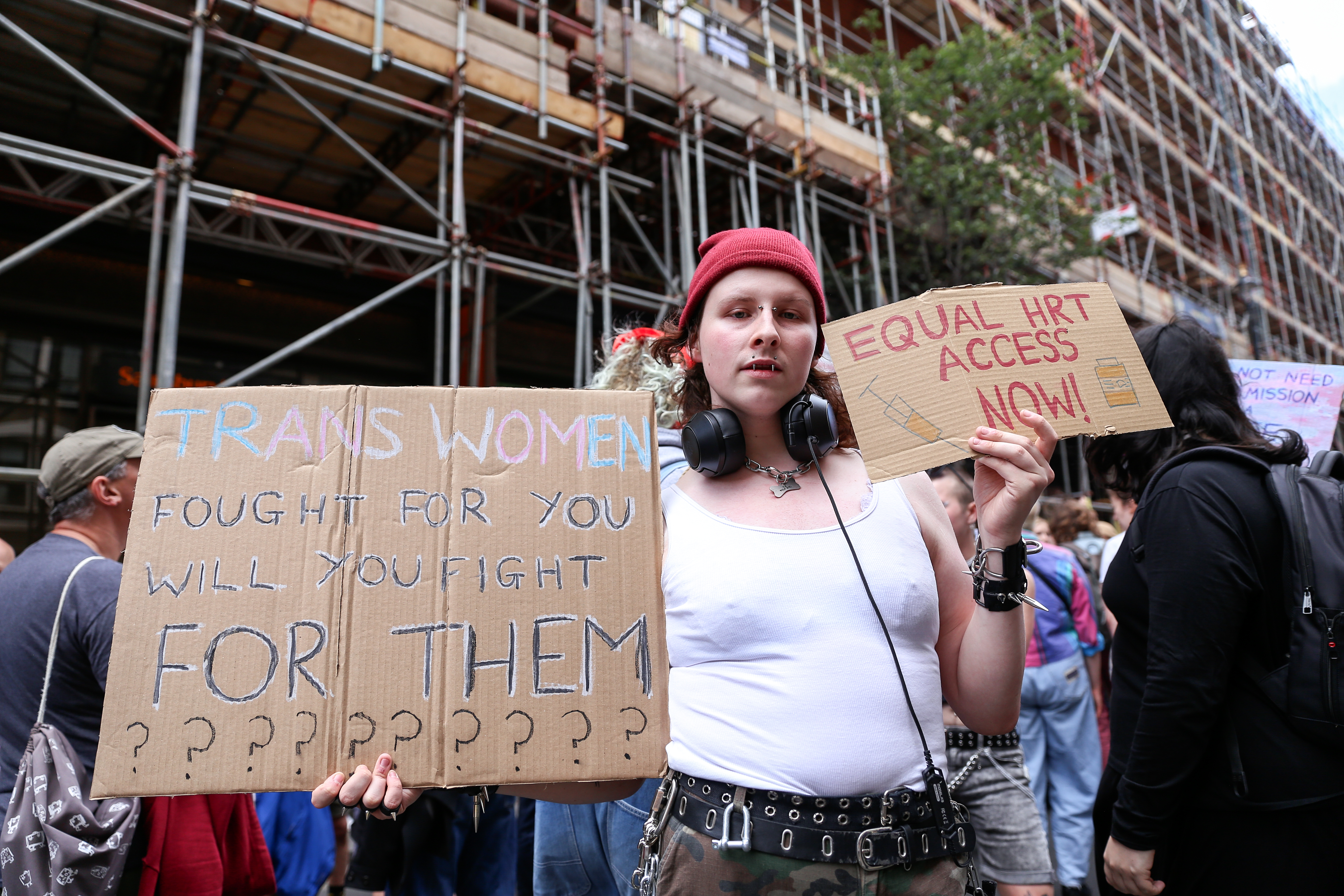
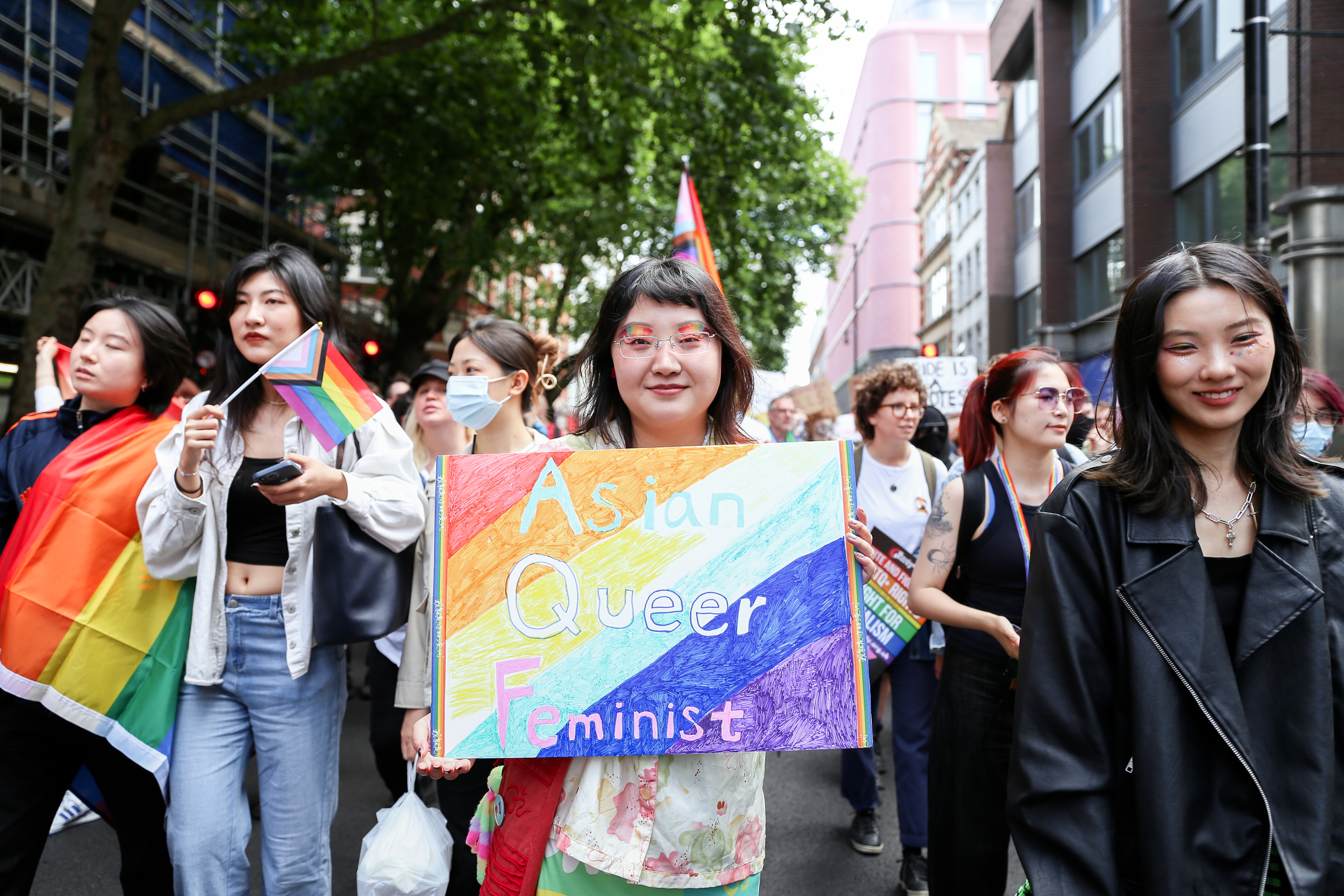
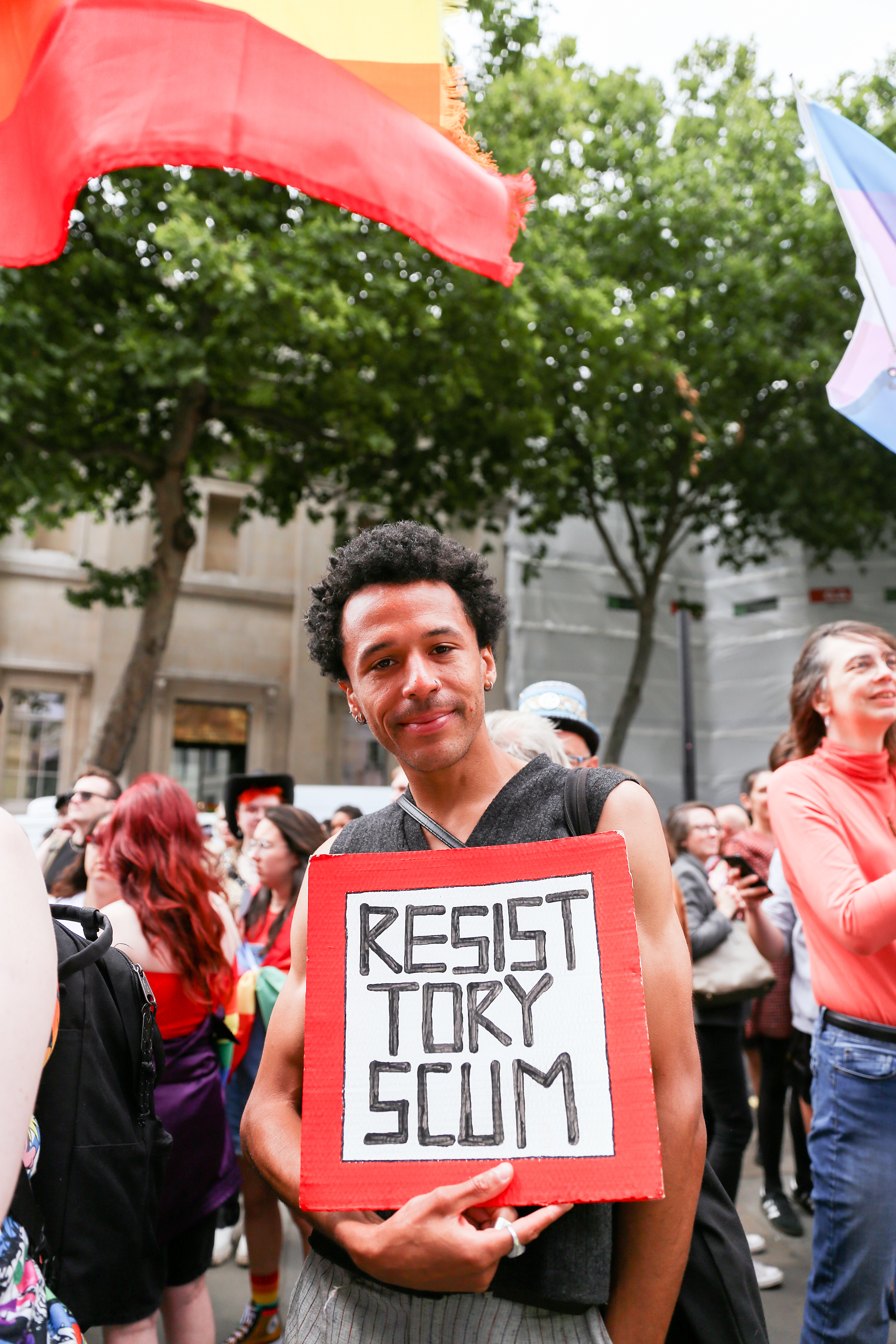

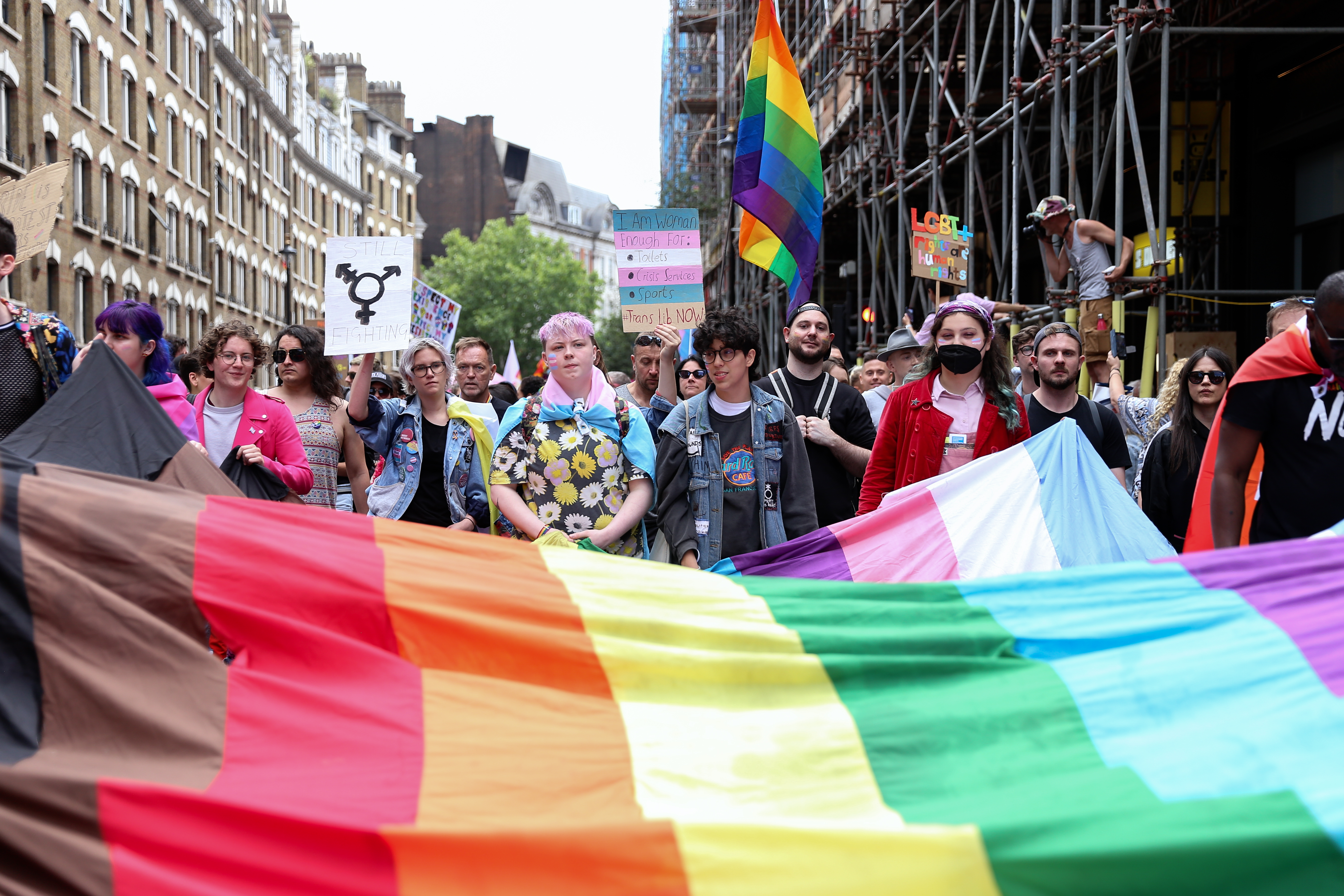
All interviews by Bex Wade.
More
From VICE
-

Screenshot: The Pokémon Company -

Screenshot: Epic Games -

All About Space/ Contributor/Getty Images




